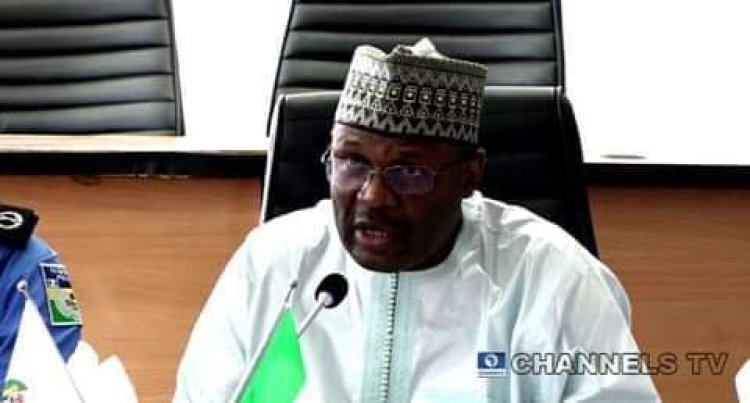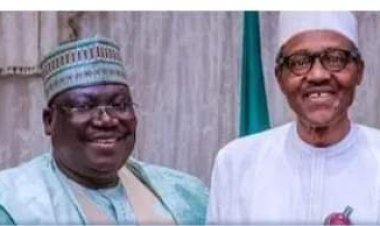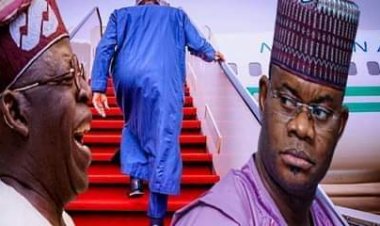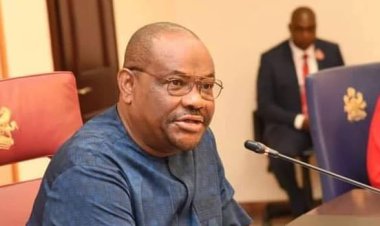INEC Warns On 2023 Campaign: We’ll Track Funding Sources, Monitor Bank Accounts Of Politicians, Parties.

*To monitor movement of money on election days to check vote-buying
*IPAC, Jega seek accountability, strict enforcement of election funding laws
As Nigerians await the release of the 2023 general election timetable, the Independent National Electoral Commission, INEC, has vowed to beam its searchlight on politicians and political parties in a bid to track the sources of funds for their campaigns.
To this end, the commission has said it will set up teams to monitor election spending ahead of the elections.
The INEC Chairman, Prof. Mahmood Yakubu, who stated this at a policy round-table conference on political campaign finance organised by The Electoral Forum in Abuja yesterday, also said the electoral umpire would also monitor the movement of money on election days to help tackle vote-buying at polling units.
Represented by Prof. Ajayi Kunle, who is INEC’s National Commissioner in-charge of party monitoring committee, Mahmood said through the Economic and Financial Crimes Commission, EFCC, commercial banks would be mandated to report all suspicious transactions ahead of the election while threatening to prosecute any bank that failed to cooperate.
He said, “As long as we have not notified anybody that the race to the 2023 general election has started, we are not unaware of what anybody is doing. We follow the law strictly.
“We have not officially declared notice for the 2023 general elections, but when we so declare, we will put our monitoring committees to motion like the central banks, DSS,EFCC, ICPC, the (commercial) banks and other law enforcement agencies. We have that plan already.
“Every candidate must be made to declare his bank asset. That is where they draw out their money so we will make them to present their statement of account right from the onset. We will make it mandatory for them to turn in their bank statement so that if they say they are doing billboard and the account remains the same, then there is a problem.”
On the issue of vote buying, the INEC Chairman said, “We are going to establish finance monitoring teams and they will be among the electorate but they (politicians and political parties) won’t know. We are going to do it in a way that the influence of money will be reduced, because we want to make the electoral field a level playing ground for both rich and poor candidates and electorates. Everybody will be on equal level so that you won’t influence the voting pattern.”
According to him, besides the Electoral Act, the constitution empowers INEC to also make any other regulations that will assist its efficiency. The law, the Electoral Act empowers INEC to make other regulations.
Earlier, the National Chairman of Inter-Party Advisory Council, IPAC, Engr. Yabagi Sani, called for a strict enforcement of the regulations on election funding so as to prevent the monetisation of the electoral process and improve the level of trust between electorates and political party candidates.
This is even as the immediate past Chairman of INEC, Prof. Attahiru Jega, identified the lack of accountability and transparency in political campaign financing as key factors responsible for some challenges facing Nigeria’s electoral system.
According to Jega, “If we insist on accountability, then you can begin to somehow sanitise the way political parties raise funds. I think what has happened is that we paid too much attention on the issue of electronic transmission of results, and somehow they quickly passed the sections about raising the threshold. The civil societies did not pay much attention in their advocacy against this particular issue.
“Nevertheless, I wouldn’t advise or recommend that we delay the passage of the bill on account of this particular issue. What we should be exploring are ways and means of ensuring that there is accountability about how these funds are raised and the spending ceiling is met as well as how the expenditure is done.”
On his part, the IPAC Chairman said the need to step up enforcement of the regulation on election funding was born out of the imperatives of sanity and integrity in elections, saying that a failure to do so could debase the voting process to the level of what he described as “a commodity for the highest bidder.”
Sani, who was represented by IPAC’s National Treasurer, Barrister Obidike Okolo, noted that the triple menace of trans-national drug trafficking, money-laundering and terrorism, had led to issues of corruption as well as the destabilisation of democratic philosophy.
He said while the controversial Electoral Amendment Bill (2020), if eventually assented to by President Muhammadu Buhari, will usher in the upgrading of what a presidential candidate can spend at elections from N1 Billion to N5 Billion, representing a 400% increment amongst others, there was a need for its enforcement to ensure compliance with the provisions of the law on political campaign finance.
This, he noted, would enable the country to avoid a situation where the country’s democracy is undermined in the long-term.
Sani said, “After the restoration of democracy, the Nigerian parliament enacted the first statute regulating election funding in 2005 and followed with an amendment to the Act in 2018.
“Yet, another amendment with more comprehensive prohibitions came about in the 2020 Electoral Amendment Bill, still in the works as a result of disputes between the Legislative and Executive Arms over certain clauses and provisions.
Vanguard News


















































